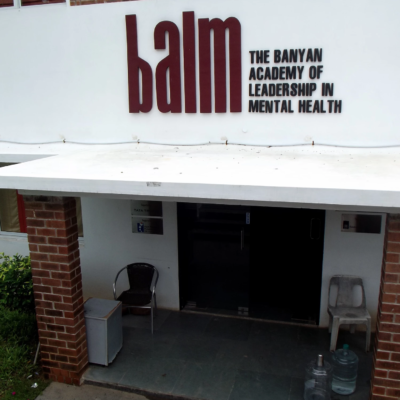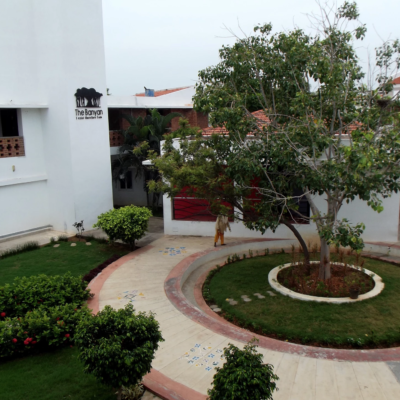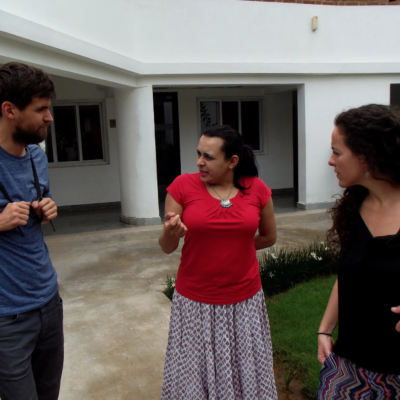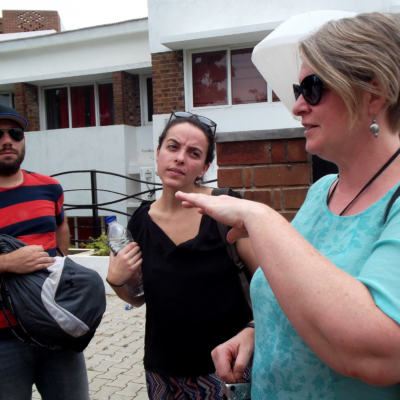Nairobi, Bratislava, Chennai, Hamilton, Waterloo, Santiago, Budapest, Brno, Tshwane. These cities have different foods, different customs, different styles of dress. They believe, sometimes, in different religions. Their governments are bound by different constitutions.
But the IGH Leadership Program cohort from each of these cities agreed on one thing: the street is not a place to live.
The cohort met in Chennai, India for the second of three convenings. The first convening, in Chicago, featured a curriculum that focused on Agile Problem Solving and innovation facilitated by Community Solutions. At the meeting in Chennai, Community Solutions’ curriculum mixed technical know-how with opportunities to exchange ideas and discuss how to overcome specific programmatic hurdles they were encountering in pursuit of the long- and short-term goals they’d committed to in Chicago.
“Homelessness work doesn’t exist in a vacuum,” explained Mrinalini Ravi, who works for the Chennai-based nonprofit The Banyan. The Banyan works specifically with people experiencing homelessness who are also mentally ill, operating facilities throughout the region. One such facility, known as The Balm, provides permanent supportive housing for older women.
At the IGH Leadership Program’s first convening in Chicago, Mrinalini and her IGH Leadership Program partner (and coworker at The Banyan), Preetha Krishnadas, committed to a short term goal of getting voter ID cards for all the patients in one of their facilities; they were happy to announce at the fall convening that they had achieved that goal, obtaining voter ID cards for 138 mentally ill clients.
This is a major milestone for both The Banyan and for persons living with mental health issues, as this is the first time in Indian Politics that a person living with a mental health issue in an inpatient setting has been given a right to vote. It also come at a time when the Indian government is debating a Destitution Bill which would decriminalize homelessness in the country, and according to key constituents whom Preetha and Mrinalini have interviewed, being recognized as an Indian citizen with a right to vote is one of the most critical elements to fostering their personhood and political identity.
“The law is for people experiencing homelessness,” Preetha pointed out. “We should hear their feedback.”
Common Problems
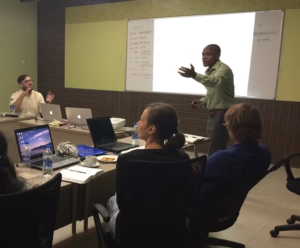 Those working in the homelessness sector hear the phrase “homelessness is a local problem,” a lot, and to a great extent, it’s true. The specific issues facing Mrinalini and Preetha in Tamil Nadu, India are not necessarily the exact same as those facing Marie Morrison and Amanda DiFalco in Ontario, Canada.
Those working in the homelessness sector hear the phrase “homelessness is a local problem,” a lot, and to a great extent, it’s true. The specific issues facing Mrinalini and Preetha in Tamil Nadu, India are not necessarily the exact same as those facing Marie Morrison and Amanda DiFalco in Ontario, Canada.
But each team in the IGH Leadership program has faced obstacles that are familiar to anyone working in the civil sector: lack of resources, conflicting public opinions, and a deficit of political will.
“Kenya is one of the fastest growing countries in the world, and one of the richest in Africa,” explained Rodgers Omurambi of the Centre for Empowerment and Life Transformation in Nairobi, Kenya. “But it’s not looked at as ‘homelessness.’ It’s looked at as ‘street life.’ People think of it as a choice. We have to find a way to adjust attitudes.”
The Bratislava and Budapest teams are also working on campaigns to change the tide of public opinion. Luca Koltai from Habitat for Humanity Hungary in Budapest is working under the peculiar conditions of having ten times the amount of vacant privately-owned homes as there are people living on the street–but the stigma around homelessness, and lack of housing benefits and social rentals, turns empty homes unaffordable for people experiencing homelessness.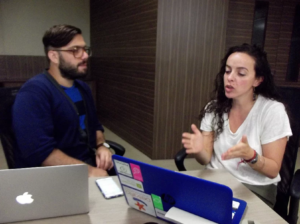
In some places, the issue is a government that is often in flux; in others, government is too long-standing and set in its ways. Vit Lesak, from the Platform for Social Housing in Brno, Czech Republic, helped start a network of people who had previously experienced homelessness to find their strengths and figure out how to better serve those still on the street.
“We learned it may be better to organize our own networks than to rely on a stronger and more rigid partner like the government,” Vit explained. He shrugged. “Politics are messy.”
Isabel Lacalle and Karinna Soto from CalleLink in Santiago, Chile took a similar route. Between the last convening and this one, they teamed up with colleagues in Brazil and Puerto Rico to form the Latin American Homelessness Network, which had its first meeting in June. Their goal is to strengthen communications across borders and create an inclusive environment where NGOs and governments can work together.
Common Solutions
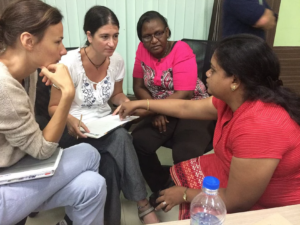 Local problems can have global roots–and global solutions.
Local problems can have global roots–and global solutions.
For example, Wilna de Beer and Joel Mayephu, from the Tshwane Leadership Foundation in Tshwane, South Africa recently used the VI-SPDAT, a North American intervention by OrgCode Consulting and Community Solutions, to determine the most vulnerable population in an overcrowded shelter. In Ontario, Marie and Amanda–also working on prioritization and vulnerability–worked to develop a framework to improve language around “chronic homelessness,” and help determine vulnerability.
As soon as they mentioned it, hands in the room shot up. “Can we get a copy of that?”
On the issue of working with the government, the room quickly filled with voices, offering advice and lamenting many of the same obstacles.
Team Tshwane confronted the issue of lacking political strength by collaborating with universities, service workers, healthcare professionals, local officials, and people experiencing homelessness to draft a plan for government involvement.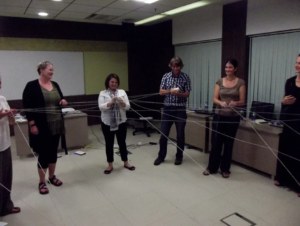
“We’re excited to be collaborating with the new government,” Wilna said, “because there is no party majority, which allows for more diverse voices.”
That approach was helpful for Mariana Ištoňová and Jozef Kákoš, from DePaul Slovensko in Bratislava, Slovakia who are drafting an action plan for 2017 to help raise resources, increase city involvement, and advocate to the public. They’ve managed to garner political support for a national homelessness strategy and improved cooperation between NGOs.
Connecting Threads
There is no silver bullet solution for homelessness. But there are interventions that have been successful and can be adapted to suit unique contexts. During their three days in Chennai, the IGH Leadership Program cohort exchanged ideas, advice, commiserations, and resources.
Progress has been made in each city, and will continue to be made between now and December. To quote Nairobi’s Susan Kiogora, “We have many challenges … but this is a global problem which needs people to come together to be a strong force.”
Or, to put it more simply: “I value our strength.”

